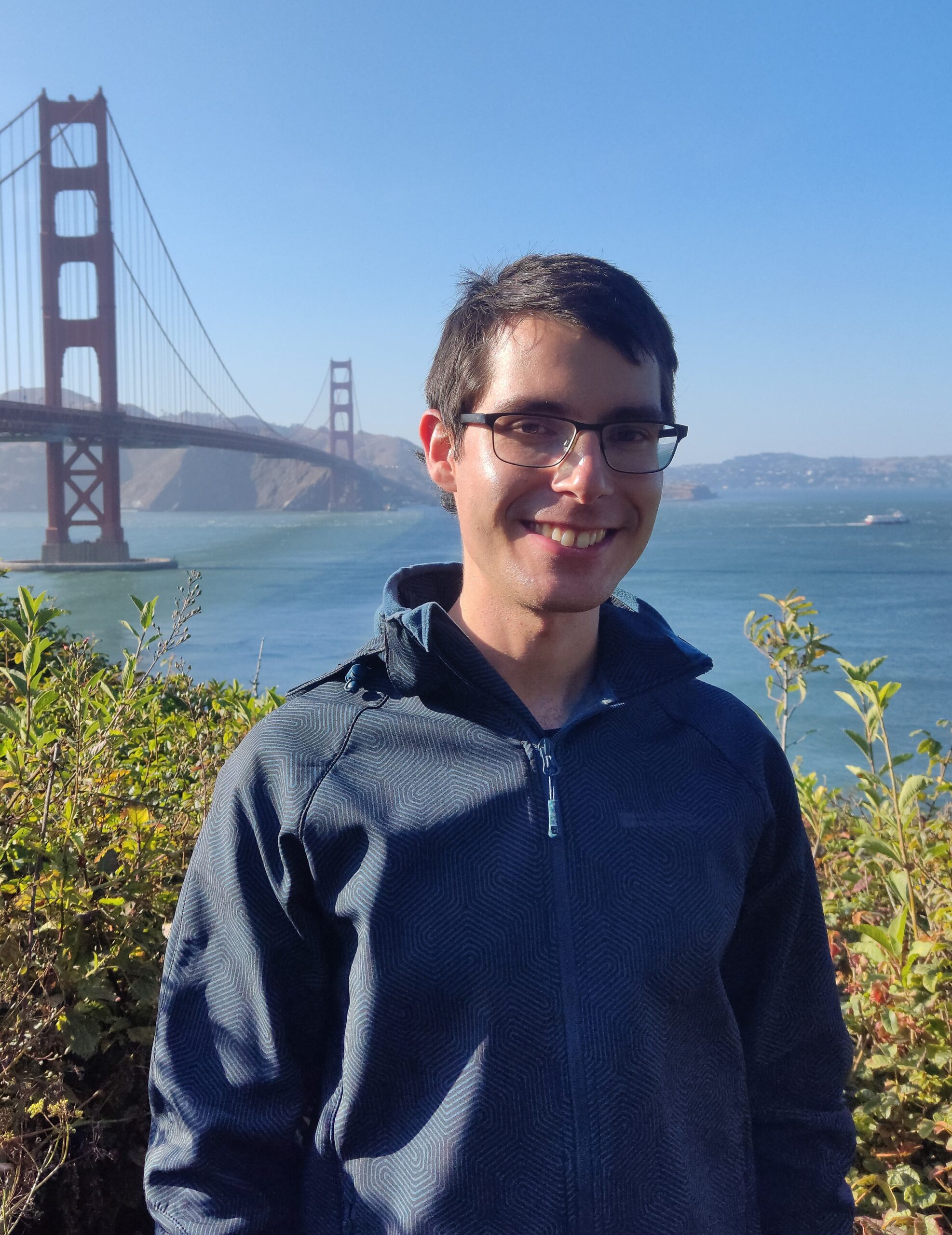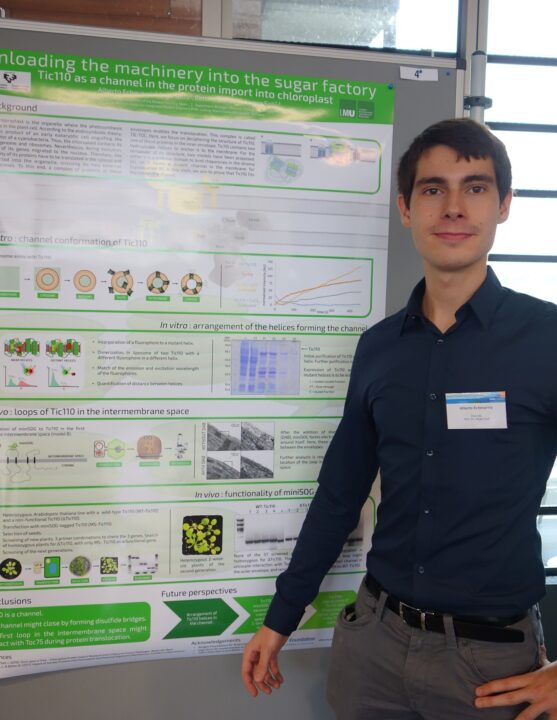
A Motivating Global Pathway in Research
Growing up in the Basque Country of Northern Spain, Alberto Echevarría-Poza had two early inspirations that would fuel his interest in science: his father and his brother. While his father was a humanities enthusiast, he encouraged Echevarría-Poza to learn about the world around him. And his older brother was always interested in science, and would go on to study chemistry in college.
“My brother was three years ahead of me, so I was always very curious to hear what he had to share,” Echevarría-Poza says. “When it was my time to choose what I wanted to study for a major at the university, I had always thought that I would just follow my brother and go for chemistry, but in the end I was interested in the life sciences, and my mother encouraged me as well—making it a family effort.”
Those interests would take Echevarría-Poza from University of the Basque Country for undergraduate work in biotechnology to plant science research as an Amgen Scholar at LMU in Germany, and then to the University of Cambridge, where he is now in his last year of a PhD program, studying the biochemistry of the plant cell wall. Participating in the Amgen Scholars Program in 2017 heavily influenced Echevarría-Poza’s path, leading him not only to working with plants but also to a PhD pathway in academic science and to the University of Cambridge—where he recently met a new cohort of Amgen Scholars at the 2023 Amgen Scholars Europe symposium, serving as an alumni speaker and mentor.
“I decided to come back to Cambridge for my PhD, because I had been there for the first time for the Amgen Scholars Europe symposium, and it was a very nice experience,” Echevarría-Poza says. “It was very cool to be on the other side this summer, and have a new cohort of motivated and talented students listen to what I have to say.” He found the experience returning as an alumnus “refreshing,” as he remembered being there as a student six years prior asking questions about other alumni experiences.
When Echevarría-Poza was an Amgen Scholar, he had little prior experience with conducting research in a lab. His education in Spain had been primarily focused on lectures in the classroom and routine practicals. Traveling internationally to Germany to do hands-on plant science research at LMU was transformative.

First and foremost, his Amgen Scholar summer allowed him to see a pathway toward a PhD and an academic career. It also helped to ignite his passion for basic research on plants. “All the oxygen that we breathe comes from photosynthetic organisms, yet plants are often overlooked in research,” Echevarría-Poza says. And finally it led him to more summer research programs, including one at the University Cambridge in the same lab in which he is now doing graduate work.
Echevarría-Poza now studies xylan, a polymer that forms the cell wall and which is a source of biofuels and biomaterials. After finishing his PhD, he hopes to pursue postdoctoral work and eventually become a leader in research, “working to instruct other people to become great scientists and altogether work for the greater good.”
Throughout his pathway from an Amgen Scholar until now, Echevarría-Poza has enjoyed working internationally and living in new places. What he loves about Cambridge is how small the college town feels. “Pretty much whoever you bump into on the street is an expert in some area, which is quite encouraging and motivating,” he says. He also stays in touch with other Scholars in his cohort from LMU, with some also ending up in Cambridge for their graduate studies.
At the recent Amgen Scholars symposium as an alumni speaker, Echevarría-Poza encouraged the current cohort to find what motivates them. “Motivation, I think, is the most important thing,” he says. “It doesn’t matter if you don’t have the knowledge or the skills. If you really have the motivation, that will push you to learn all that knowledge and to gain all those skills and it will direct you to the right people.”
Echevarría-Poza also says he wished he had realized as an Amgen Scholar to take advantage of opportunities to ask professors and scientists about their research and career paths. “I was a bit shy in that way,” he says. “And now I know that there’s nothing wrong about it and just go and speak with those people and ask them questions, because they themselves are always happy to share their experiences with you and to give you the very best of their advice.”

